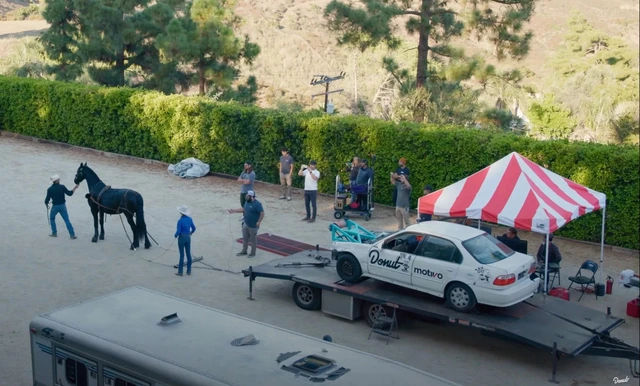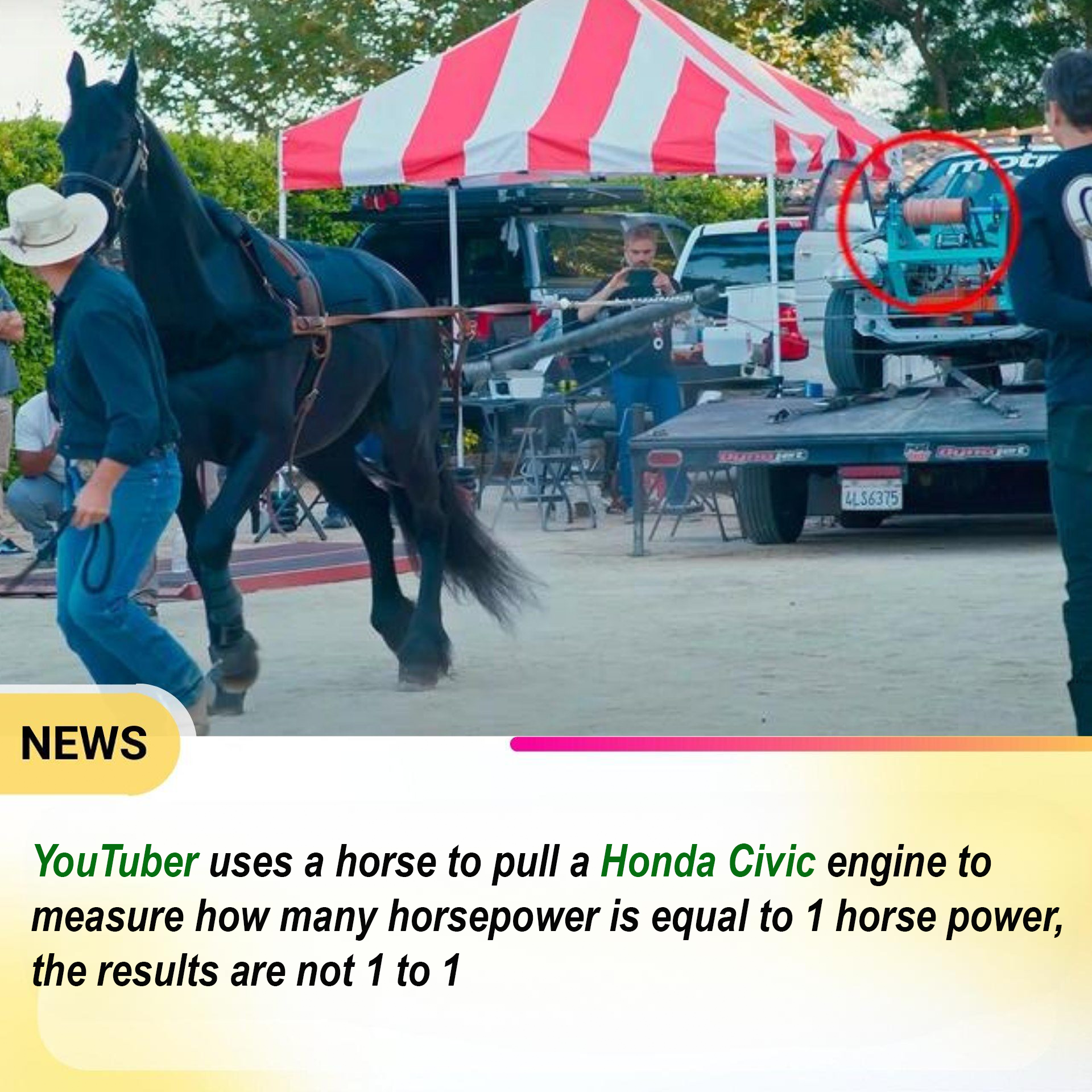Horsepower is a unit of power measurement that has become very popular in the global car industry, but is one horsepower equal to one horse power in reality?
Horsepower is the most popular unit of power measurement globally today, on par with kW as electric vehicles are becoming more and more popular today. This unit first appeared more than 2 centuries ago, specifically in the late 1700s.

At that time, British inventor James Watt came up with the idea of comparing the power of the steam engine he developed with the power of horses turning a mill at a brewery. Watt then calculated that one horsepower could lift a weight of 250 kg to 300 mm in 1 second.

Horsepower is a unit of power measurement that has been popular for hundreds of years, but not everyone clearly understands the meaning of this unit – Photo cut from video, source: Donut Media
Donut Media YouTube channel, to find out the truth Is the horsepower equal to the maximum horsepower or is it lower/higher? I tested it myself using the “real person, real work” method. They had actual pulling horses and then transmitted the pulling force through a specially made Honda Civic onto the gauge.
Specifically, the requested horse will pull the coiled cable in the engine compartment connected to the gearbox. The work generated from this will then help the wheel roll and be completely measured again. Factors such as losses in the process of transmitting power from the engine to the wheels are also carefully calculated to produce the most accurate data.
It’s simple to say, but measuring how much horsepower a horse can produce is not easy and requires an extremely elaborate practical measurement – Photo cut from video, source: Donut Media
Results that Donut The resulting media is that a horse can produce 1.16 horsepower, which is slightly better than the measurement that has existed for more than 2 centuries.

Mã lực là một đơn vị đo công suất đã trở nên quá đỗi phổ biến trong làng xe toàn cầu, tuy nhiên liệu một mã lực có bằng một sức ngựa ngoài thực tế?
Mã lực là đơn vị đo công suất phổ biến nhất trên toàn cầu hiện tại, ngang hàng với kW khi xe điện ngày nay đang trở nên ngày một phổ biến hơn. Đơn vị này xuất hiện lần đầu từ hơn 2 thế kỷ trước, cụ thể là vào cuối những năm 1700.

Vào thời điểm đó, nhà sáng chế người Anh James Watt đã nảy ra ý tưởng so sánh công suất động cơ hơi nước mình phát triển với sức ngựa kéo quay cối xay tại nhà máy bia. Watt khi đó tính ra rằng một mã lực có thể nâng 250 kg trọng lượng lên 300 mm trong 1 giây.
 Mã lực là đơn vị đo công suất đã phổ biến trong hàng trăm năm, tuy nhiên không phải ai cũng hiểu rõ ý nghĩa đơn vị này – Ảnh cắt từ video, nguồn: Donut Media
Mã lực là đơn vị đo công suất đã phổ biến trong hàng trăm năm, tuy nhiên không phải ai cũng hiểu rõ ý nghĩa đơn vị này – Ảnh cắt từ video, nguồn: Donut Media
Kênh YouTube Donut Media, để tìm hiểu thực hư một mã lực có bằng sức ngựa tối đa không hay thấp/cao hơn, đã tự mình thử nghiệm theo phương pháp “người thật việc thật”. Họ đã cho ngựa kéo thực tế và sau đó truyền tải sức kéo thông qua một xe Honda Civic tự chế đặc biệt lên máy đo.
Cụ thể, chú ngựa được nhờ tới sẽ kéo cáp cuộn trong khoang động cơ kết nối với hộp số. Công sinh ra từ đây sau đó sẽ giúp lăn bánh và được đo lại hoàn chỉnh. Các yếu tố như tổn thất trong quá trình truyền công suất từ động cơ tới bánh cũng được tính toán kỹ càng để cho ra số liệu chính xác nhất.
Nói thì đơn giản nhưng việc đo một chú ngựa có thể sinh ra công suất bao nhiêu mã lực là không hề dễ và yêu cầu một cách đo thực tế cực kỳ công phu – Ảnh cắt từ video, nguồn: Donut Media
Kết quả mà Donut Media thu về được là một chú ngựa có thể tạo ra công suất 1,16 mã lực, nghĩa là nhỉnh hơn phép đo đã tồn tại hơn 2 thế kỷ một chút.
